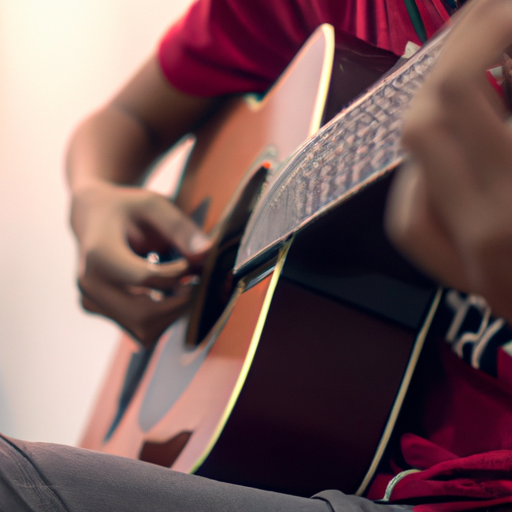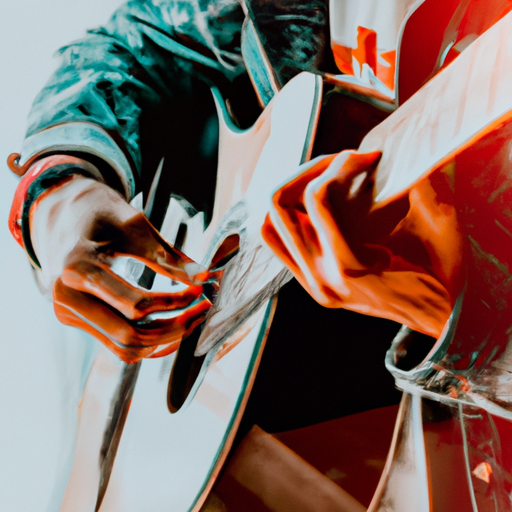
Playing the guitar is a passion for many people. It's an instrument that requires practice, patience, and dedication to improve your skills. In this article, we will discuss the importance of guitar practice and provide tips for improving your playing.

Guitar practice is essential if you want to improve your skills. It helps you develop your technique, rhythm, and musicality. Consistent practice will also help you build muscle memory, which is crucial for executing complex guitar parts. Whether you're a beginner or an advanced player, practicing regularly should be a part of your routine.

Setting goals is an important part of guitar practice. It helps you stay motivated and focused on what you want to achieve. When setting goals, it's essential to be specific and realistic. For example, instead of setting a goal to become a guitar virtuoso, set a goal to learn a particular song or technique within a specific timeframe. This way, you can measure your progress and celebrate your achievements along the way.
Creating a daily practice routine is crucial for consistent improvement. It's essential to set aside dedicated time each day to practice. You can start with as little as 15 minutes a day and gradually increase your practice time. Your routine should include warm-up exercises, technique drills, and music theory practice. It's also essential to practice consistently rather than cramming several hours of practice into one day.
Warm-up exercises are essential to prepare your fingers and hands for practice. They can help prevent injuries and improve your dexterity. Start with simple finger exercises such as finger stretching, fingerpicking, and alternate picking. Gradually increase the difficulty of your warm-up exercises to challenge your fingers and hands.
Improving your technique is an ongoing process. It's essential to practice different strumming, picking, and fingerstyle techniques to develop your playing style. You can also experiment with different rhythms and tempos to challenge yourself. When practicing, focus on accuracy and timing rather than speed.
Understanding music theory is crucial for improving your playing and writing skills. It can help you understand chord progressions, scales, and modes, making it easier to improvise and write music. You can start by learning the basics of music theory, such as reading sheet music, understanding time signatures, and learning chord progressions.
Developing your ear is essential for recognizing notes and chords. It can help you play by ear and improvise on the spot. Ear training involves listening to music and identifying the different notes and chords. You can also use apps and online resources to practice ear training.
Playing with other musicians is a great way to improve your skills. It can help you develop your rhythm, timing, and improvisation skills. You can join a band, attend jam sessions, or collaborate with other musicians virtually. When playing with others, focus on listening and communication to create a cohesive sound.
Recording yourself is an excellent way to track your progress and identify areas for improvement. You can use your smartphone or a recording device to capture your playing. When analyzing your recordings, focus on timing, accuracy, and tone. You can also share your recordings with a guitar coach or a mentor for feedback.
Improving your guitar skills takes time and dedication. Remember to practice regularly, set achievable goals, and focus on consistent improvement. Don't be afraid to experiment with different techniques and styles. With patience and perseverance, you can become a skilled guitar player. Keep practicing and never give up on your passion for music!
Learn more about guitar practice tips